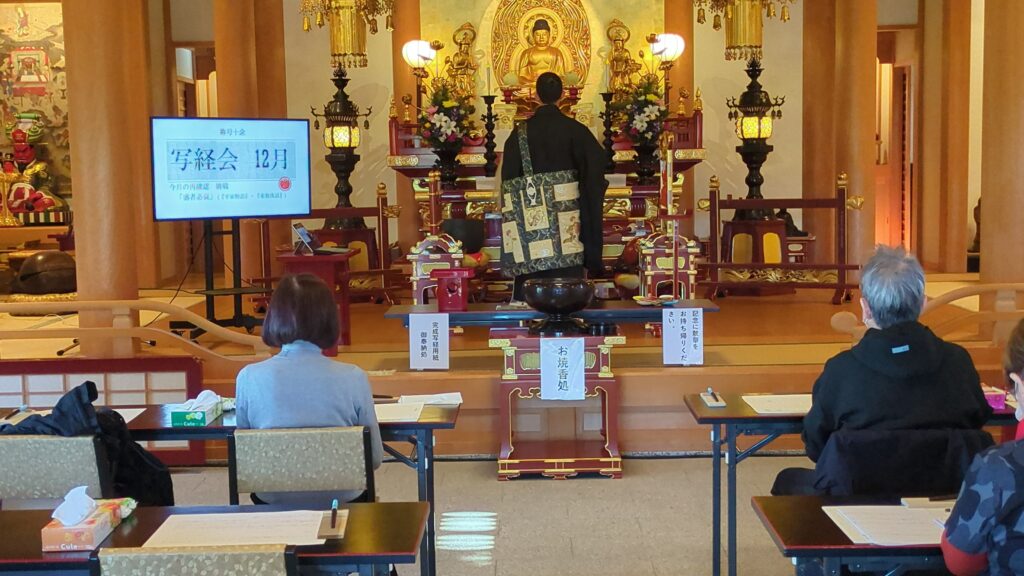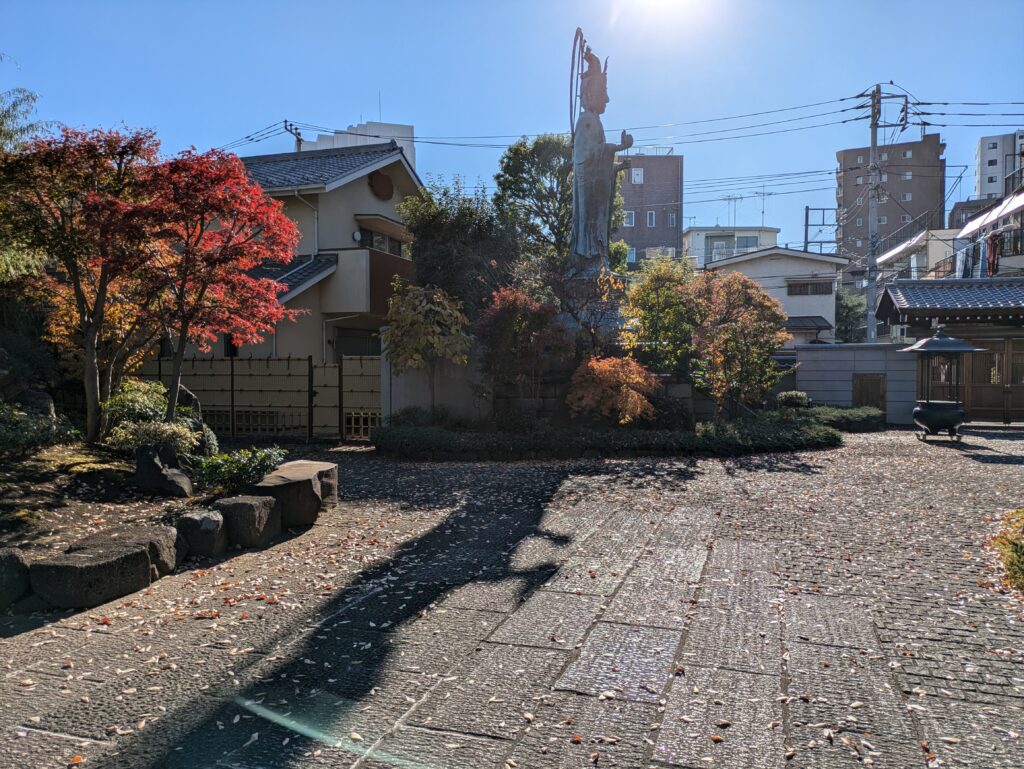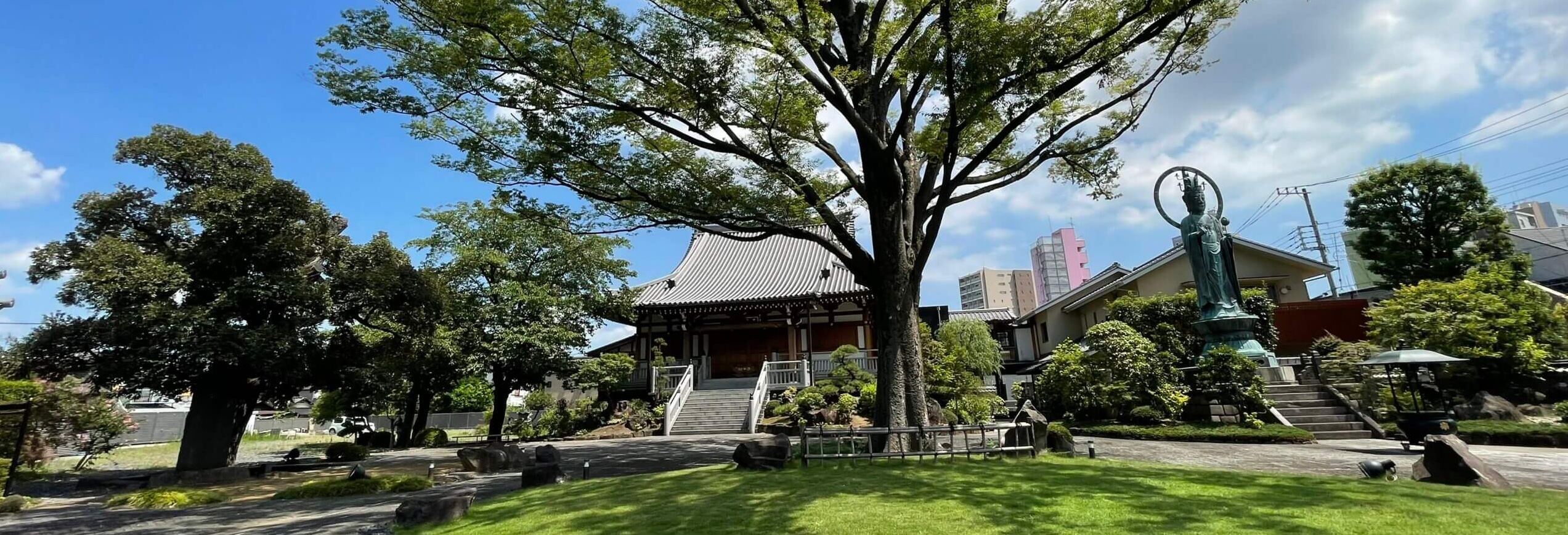title tenen
The Shokoji Temple's sutra copying class is not a calligraphy class, so the goal is not to learn to write well. The goal is to engage in introspection (self-reflection) to reaffirm the true nature of things that are necessary to make our daily lives peaceful and rich, and furthermore, to pray to the Buddha and be welcomed into the Pure Land like our beloved ancestors at the end.
A little over 10 people attended the November sutra copying session, and as always, they engaged in self-reflection. The calm behavior of the veterans set an example for the newcomers, and the session took place in a very good atmosphere. I think this is also an example of the importance of continuity. As always, we engaged in self-reflection (self-reflection) together with the participants and chanted the Nembutsu.
At the last sutra copying session, we reaffirmed how we perceive our loved ones through the key phrase "life and death are one and the same." As times progress, it is becoming possible to recreate great people from the past using generative AI. However, there is no need for generative AI to recreate people who are important to us. This is because we can recreate our loved ones from our own memories without relying on the power of generative AI. Of course, we think that using generative AI to recreate great people we have never met is a very interesting activity.

Well.
This December, let's reaffirm important ideas by looking at the words of Takuan Soho, a famous Edo period monk.
I wish to have a heart that is not pleased with victory, and is not angry with defeat.
What good is it to be a person who neither wins nor loses without taking on the challenge of his dreams?
If possible, I would like to be ecstatic about winning.
Without getting angry or losing, or getting caught up in the worldly competitions,
What about aiming to be someone who transcends winning and losing?
For us ordinary people, the joy of winning and the regret of losing are not necessarily bad things in our lives. They can be the driving force that paves the way for our future.
In the world of sports, the joy of the winners and the beauty of the losers can captivate us and give us courage.
These are the cases when winning and losing are functioning properly. However, what happens if you become too attached to winning and losing? You will cheat. You will be jealous and resentful of those who are better than you. You will become desperate after losing. You will look down on losers. You will be afraid of falling from being a winner to being a loser. Nothing good will come of it.

In our daily lives, we see many situations where the concept of "winners and losers" has degenerated into an act of superiority based on a banal comparison with others, as symbolized by the phrase "winners and losers."
As long as winning or losing is a contest of honor or a show of appearance, it will do more harm than good.
Don't be happy about winning, don't be angry about losing
Being at peace of mind is the true winner
We often hear the term "anger management." It means controlling feelings of anger. However, it is not just anger that needs to be controlled; it is all emotions, including joy, anger, sadness, and happiness. By controlling joy, anger, sadness, and happiness, we can maintain peace of mind, or in other words, maintain a state of serenity. It is also important to note that it is important to "control" emotions, not to "suppress" them.
In our lives, we will experience both victories and losses. Whatever the case may be, it is very important to continue living as a true winner. Let us take what we have reaffirmed today to the phrase "all things rise and fall" and spend the next month trying to act positively. This will surely make our lives even richer, little by little.

With this determination in mind, the prayer I wrote in my copy of the sutra is:
"Those who prosper must fall"
Let us write this, reflect calmly, and chant the Nembutsu.
Namu Amida Butsu


